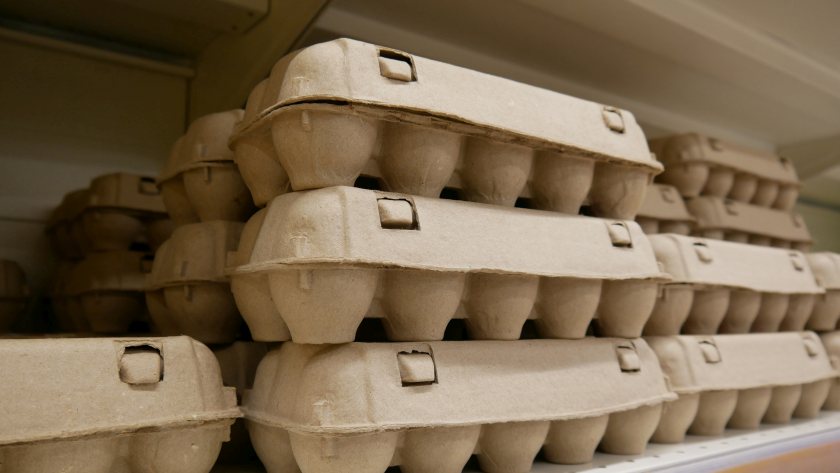
Producers have urged ministers to take immediate action after a sharp rise in Ukrainian egg imports raised fears that British free range producers are being undercut by products produced to lower welfare standards.
The British Free Range Egg Producers Association (BFREPA) has held urgent meetings with Defra to warn that UK support for Ukraine must not come at the expense of domestic egg producers operating under some of the world’s highest welfare and food safety standards.
Since late 2024, producers have seen a surge in Ukrainian egg products entering the UK, a trend linked to the EU tightening controls on Ukrainian poultry and eggs entering the single market. BFREPA says displaced volumes are now being redirected to the UK, destabilising the domestic market.
BFREPA stresses that the bulk of Ukrainian imports are not going through retail but into foodservice and food manufacturing — sectors with the weakest origin labelling and poorest traceability. This means consumers often have no idea if they are eating products made to welfare standards banned in the UK.
The organisation argues that British producers cannot be expected to compete with imports produced in systems long banned in the UK, insisting that “if it is illegal to produce here, then it should be illegal to import.” BFREPA has repeatedly stressed that this principle is essential if the UK egg industry is to remain viable.
To escalate its concerns, BFREPA has joined forces with the British Egg Industry Council, the RSPCA, Compassion in World Farming and Animal Policy International, writing directly to Prime Minister Sir Keir Starmer.
The cross-sector letter calls for urgent action ahead of the forthcoming review of tariff suspensions, including ensuring that imported eggs meet welfare and production standards equivalent to those applied to UK producers.
It also urges the government to introduce volume limits with annual reviews to prevent further market disruption and to recognise the sensitivity of the egg sector in future trade decisions.
BFREPA Chairman James Baxter said British producers take “enormous pride in delivering food produced to exceptionally high welfare, food safety and environmental standards,” but warned that no sector can survive when competing against imports produced more cheaply in systems banned in Britain.
He said the association’s support for Ukraine was “steadfast”, but insisted it must not “undermine the investment UK egg producers have made” in improving welfare. He added that BFREPA is asking the government to act swiftly to restore fairness and protect the long-term strength of British egg production.
Alongside BFREPA’s campaign, the NFU has also been lobbying government on the wider implications of the UK–Ukraine Free Trade Agreement.
The UK suspended tariffs and quotas on all Ukrainian goods in 2022 as part of its response to the Russian invasion, later extending the measure to 2029 — except for poultry meat and eggs, where liberalisation was limited to a two-year extension following NFU pressure.
That extension expires in March 2026, and the NFU has submitted detailed evidence calling for any continuation of tariff easements to be time-limited, volume-capped and subject to annual review.
The NFU has also warned that Ukrainian imports have risen year on year, reducing returns to domestic producers and eroding confidence in a sector already hit by soaring production costs, persistent labour shortages and the ongoing impact of avian influenza.
The union says differences in welfare rules give Ukrainian producers a significant cost advantage, creating an unlevel playing field.
Both BFREPA and the NFU acknowledge the importance of continued support for Ukraine during the war, but argue that such support must be balanced with safeguarding vulnerable UK sectors.
They have called on ministers to ensure that any future trade easements include strict standards-equivalence conditions and clearly defined safeguard mechanisms.
As the government prepares to review tariff suspensions and Ukraine’s market access in early 2026, producer groups say the decisions made now will be crucial to whether British egg and poultry producers can stay competitive, with farmers awaiting clarity on the review.
